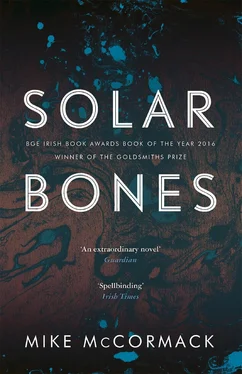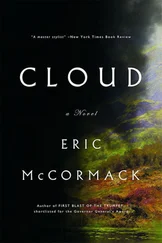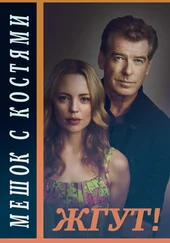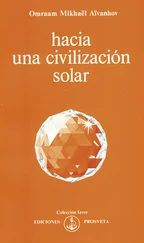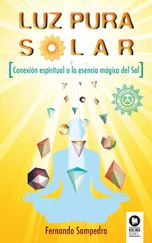how come we never noticed those tensions building
were we so blind to the world teetering on the edge that we never straightened up from what we were doing to consider things more clearly or
have we lost completely that brute instinct for catastrophe, that sensitivity now buried too deep beneath reason and manners to register but which, once upon a time, was alert to the first whining vibrations radiating from those stress points likely to give way first, that primal faculty which lies in the less evolved, reptilian part of our brain and which we credit to
dogs and vermin and birds as
their ready reflex to flee or take flight en masse just before the ground or the tree or the building beneath them begins to shudder, their primal attunement to danger stampeding them in droves from buildings and structures before they come crashing down around them, a sensitivity we have lost apparently, a faculty which has atrophied through the softening circumstances of our ascent because
collapse is never far from an engineer’s mind
and
as ever
and ever again
any image of collapse or things coming apart, always summons up memories of my father — not the ragged shambles he would become at the end of his life, but the quick man with the large hands and ready laugh I knew from childhood, the man who was such a deft touch at dismantling things and putting them back together again — harrows, ploughs and scufflers — not necessarily because of any fault or redundancy in the constructs themselves, but because there was in him that need to know how these things held together so that he could be assured his faith in them was well placed and
one of my first memories dates back to a day in childhood when I stood beside him in the hayshed and he had one of those implements dismantled across the concrete floor
the harrow, the plough or the scuffler
one of those robust constructs that slept standing at the far end of the hayshed, dreaming their iron dreams through the winter months — implements which, even if they had not essentially evolved since the medieval period in which they were perfected, were still in use on our farm as on many others right up to the 1980s
harrows, ploughs and scufflers
implements from a more solid age when the world was measured out in lumpish increments, like pounds and ounces, shillings and pence
standing at the far end of the hayshed during the fallow months of autumn and winter, all tempered blades and forged spikes, held together with iron-banded timber and biding their time as if they were the very embodiment of their own names and were indeed instruments of torment
harrows, ploughs and scufflers
names so clearly evocative of torment that years later, when I attended a conference on bridge construction in Prague or, as months later Mairead would cry in a broken howl
fucking bridge construction
I found myself browsing through the Museum of Torture near the Charles Bridge and was shocked to recognise in scale and material the exact same principles of construction echoed in those instruments of torment standing in the murky light of that dilapidated exhibition, baleful assemblages which were the persuasive tools of various judicial and ecclesial authorities, all dating from a time when the world was ever mindful of its sinfulness but sure of its judgements and had, by way of engineering, gone to some lengths to prise, screw, and pressurise the truth into the light so that they stood now in their shadowed gloom
the maiden, the rack and the wheel
and they too were all banded timber and spikes, blunt constructs held together with bolts and dome-headed rivets which, at that crucial stage of their forging, would have glowed white hot, contraptions so evocative of pain and torment in the tenebrous light of the museum that gradually my mood sifted down within me to an anxious shame as it became clear from their craft and complexity that these machines, with their screws and gearing mechanisms were, at a time when the level of engineering was at its lowest point in the Western world since antiquity, the highest technical expressions of their age, the end to which skilled minds had deployed their gifts, this wretched end such an ignoble instance of the engineer’s vocation that I felt sorrowful for although I was young at the time I already had a keen sense that engineering was a high and even noble calling, firmly on the side of human betterment where it stood with a host of other values loosely grouped at the social democratic end of the political spectrum as I understood it then, so that
lost in these thoughts, I wandered through the exhibits, among the shadows and brocade until I realised or, had to admit to myself, that I had been stalking an auburn-haired woman in a quilted anorak whose face was burnished red from the sub-zero temperature which crippled Prague in February of that year, and which was causing her to sniffle into a tissue as she moved past the exhibits, dwelling on each one in turn before ticking them off in a scraggy catalogue and her allure was not merely her looks nor the methodical way she went about the exhibition, but the fact that we were the only two people present on that winter afternoon and in our separate solitude had now come together in a kind of intricate courtship dance with and against each other, a delicate gavotte around the exhibits and down through the golden age of mechanised agony till we finally came together and stood shoulder to shoulder before a Catherine wheel, one of those complex mechanisms which deployed with
clamps and blades and spikes
all those pressures and tensions which sunder flesh and bone, all the ways of engineered anguish which quickly lost me in my attempt to fathom exactly what sort of imagination lay behind such a machine with all its evident ingenuity, most especially that awful alignment by which the body weight of the accused slowly but inevitably overcame the strength needed to uphold it and the gradual downward pressure collapsed it eventually, impaling it slowly, these thoughts going through my mind when I heard the woman standing beside me say in an American accent
it’s all about sex isn’t it, they were obsessed with it
something I had not noticed but which now, with the idea prompted, seemed obvious enough, the true origin and object of all this pressured penetrating and tearing and now, with these images clear in my head and this woman looking at me from over her tissue, it appeared also that I had assented to something more than the truth of her proposition
fucking bridge construction, Mairead wailed, when she stumbled upon all this and even if
the encounter never quite delivered on all the shameless fucking it promised in those first charged moments among the exhibits, even if it was something genuinely tender over the course of a few days in a small hotel in the workers’ suburb of Žižkov, an erotic interlude which at the time I both held dear and was ashamed of in one and the same moment, grateful in many ways but relieved that we took leave of each other with no intention whatsoever of further meetings or keeping in touch so that it was
bridge building, Mairead choked
the story of another man from another age, something remem- bered
standing here in this kitchen
only because it is woven into that memorial arc which curves from childhood to the present moment, gathering up memories of that time with my father on our farm, a skein of connections I am not likely to unravel at this moment for fear they might banish forever the image of all those agricultural implements and machines which were kept around the barns during my childhood and which my father would take apart on the floor of the hayshed, simple constructs from an age when the world understood itself differently
ploughs, harrows and scufflers
Читать дальше
